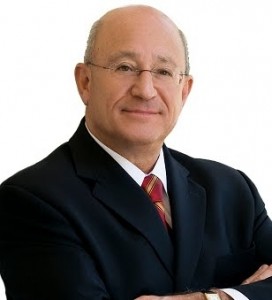 As if you weren’t already feeling the pinch in this time of need and economic uncertainty, hidden credit and debit card interchange fees are chewing a hole in your wallet. And an even bigger hole in low-income and minority households.
As if you weren’t already feeling the pinch in this time of need and economic uncertainty, hidden credit and debit card interchange fees are chewing a hole in your wallet. And an even bigger hole in low-income and minority households.
Interchange fees cost Americans $48 billion a year. If you live in California, your share of national interchange fees is about $5 billion annually. Even more frightening, a recent Hispanic Institute Study found that the current structure of the credit card system allows lower income and minority consumers to subsidize higher income and non-minority consumers for their rewards. Interchange fees vary depending on the card used. For example, a consumer with a credit card that accrues airline mileage as a reward will carry a higher interchange fee. Consequently, it is the low-income consumers who help fund the wealthier consumer’s rewards.
Never heard of interchange fees? Interchange fees are a percentage of each credit or debit card transaction that goes to the banks through network providers such as Visa and MasterCard. Out of every credit card transaction no matter how big or small, your neighborhood grocer, bookstore and small business owner loses a percentage of the sale. The amount paid depends on the interchange fee set by Visa and MasterCard. Business owners have no control over the fees and most consumers don’t even know that the cost of the mysterious interchange fee ends up being tacked on to the price of everything they buy.
I only know about interchange fees because I am the Chairman of the California State Assembly’s Banking and Finance Committee. It shouldn’t take being the Chair of a legislative committee to learn about this stuff, but it does. I recently invited banks, credit card companies, consumers and business owners to a hearing on these fees. Believe me — the people who profit the most weren’t all that excited about my invite. But when I heard that the bottom 50 percent of income earners pay at least $669 million more than they should and the top 10 percent of earners receive at least a $354 million subsidy because of these fees, I felt you had a right to know.
And guess what? Interchange fees are not regulated. Visa and MasterCard set the rates. Because of this, on average, consumers pay $427 annually on interchange fees without even realizing it. The very people who have the most to gain make the rules and consumers whether they pay cash or plastic have to take it or leave it.
Merchants are left with no choice but to raise the prices on their goods and services to cover the costs. Cash customers end up subsidizing credit card users because the higher costs are now built in to every gallon of gasoline, candy bar and box of diapers sold.
I found it is the low-income and minority consumers who are adversely effected by interchange fees. Those consumers who in all likelihood are the “unbanked” and desperately need the extra $427 a year they spend on interchange fees back into their pockets. It does not make any sense for a consumer who either has no credit or debit card or has a credit card without rewards to subsidize those that do. The wealthy receive all the perks while the low-income consumers are left paying the price due to these hidden fees.
For the sake of our consumers, this is not an issue we can ignore. By any measure $48 billion a year is real money and we have to do everything we can to get some of it back into the wallets of California’s hard working families.
Pedro Nava, the son of Mexican immigrants, was elected to the California State Assembly in 2004, the first Latino to represent his district. He is a former Deputy District Attorney, responsible for targeted narcotics prosecution and has a strong record on public safety. He served on the California Coastal Commission, appointed by then Speaker Cruz Bustamante, where he earned the #1 coastal protection voting record. He has fought to increase educational opportunities for all.

Recent Comments